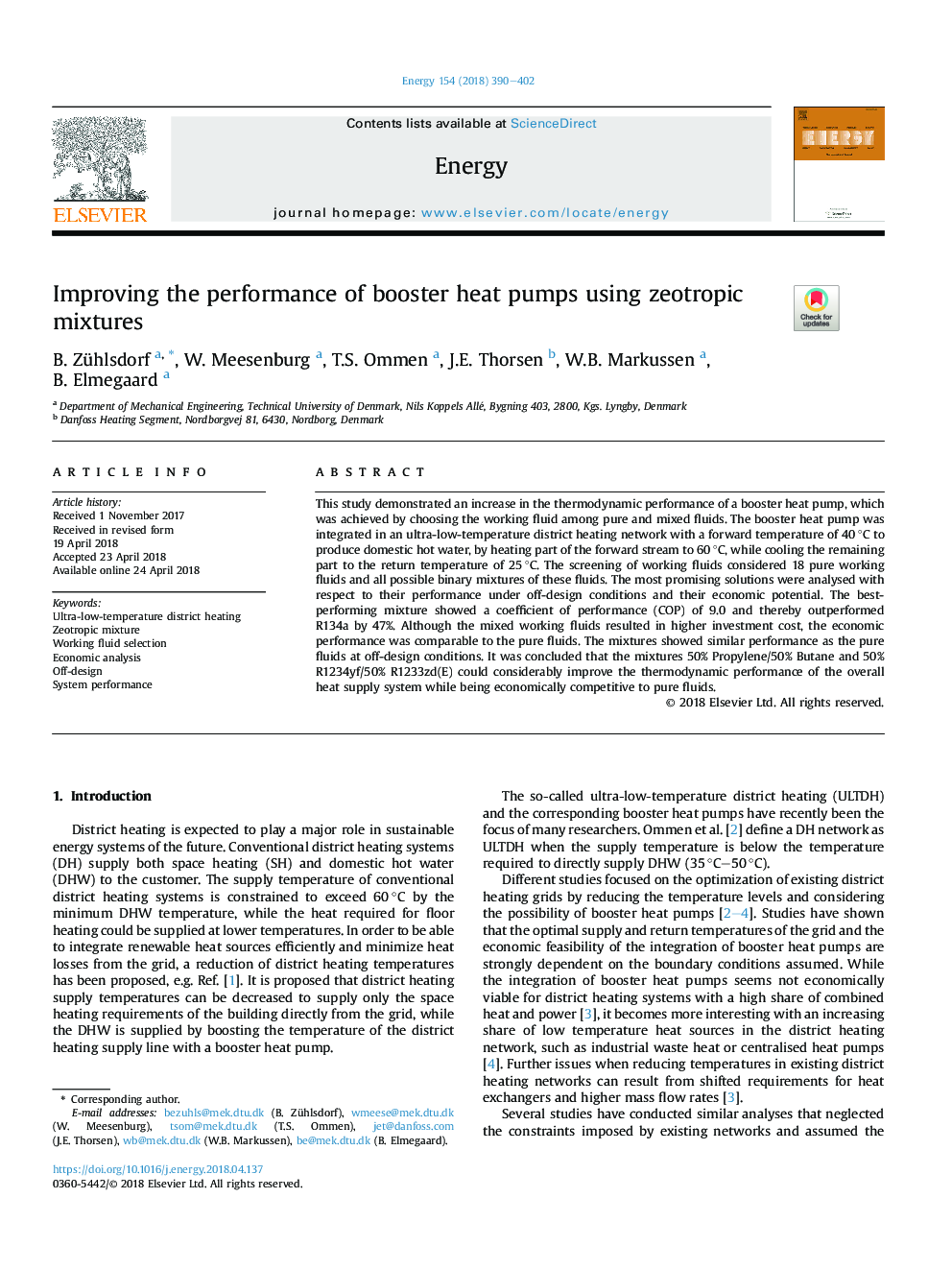| Article ID | Journal | Published Year | Pages | File Type |
|---|---|---|---|---|
| 8071501 | Energy | 2018 | 13 Pages |
Abstract
This study demonstrated an increase in the thermodynamic performance of a booster heat pump, which was achieved by choosing the working fluid among pure and mixed fluids. The booster heat pump was integrated in an ultra-low-temperature district heating network with a forward temperature of 40â¯Â°C to produce domestic hot water, by heating part of the forward stream to 60â¯Â°C, while cooling the remaining part to the return temperature of 25â¯Â°C. The screening of working fluids considered 18 pure working fluids and all possible binary mixtures of these fluids. The most promising solutions were analysed with respect to their performance under off-design conditions and their economic potential. The best-performing mixture showed a coefficient of performance (COP) of 9.0 and thereby outperformed R134a by 47%. Although the mixed working fluids resulted in higher investment cost, the economic performance was comparable to the pure fluids. The mixtures showed similar performance as the pure fluids at off-design conditions. It was concluded that the mixtures 50% Propylene/50% Butane and 50% R1234yf/50% R1233zd(E) could considerably improve the thermodynamic performance of the overall heat supply system while being economically competitive to pure fluids.
Related Topics
Physical Sciences and Engineering
Energy
Energy (General)
Authors
B. Zühlsdorf, W. Meesenburg, T.S. Ommen, J.E. Thorsen, W.B. Markussen, B. Elmegaard,
